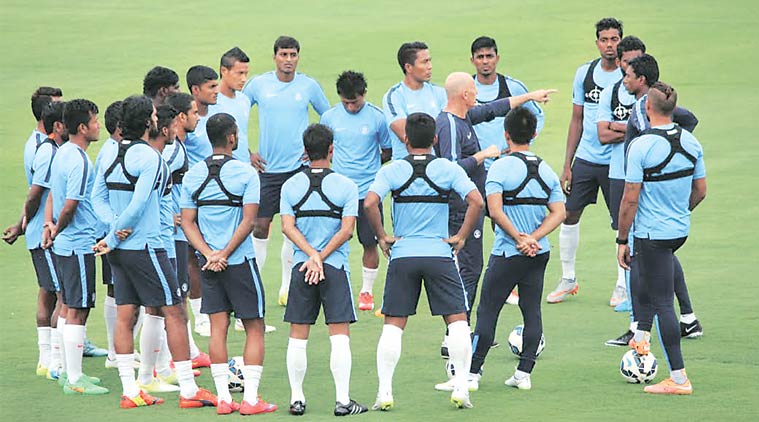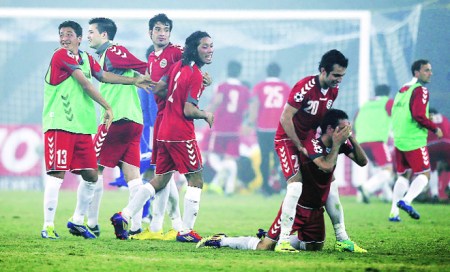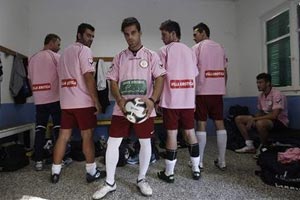Running hard, but not hard enough
 Indian players try out the GPS tracker during a training session. It was introduced by coach Stephen Constantine.
Indian players try out the GPS tracker during a training session. It was introduced by coach Stephen Constantine.
They may still be far off from the world standards, but Indian football team’s sports scientist Danny Deigan believes the players’ fitness is improving steadily, citing the figures noted during the SAFF Cup match against Nepal as an example.
Deigan, an Australian sports scientist who joined the national team this year, said matching the global mark will take time and it will have to start at the club level.
“The gap between football at the domestic level and the international level is huge and for us the biggest challenge is to bridge the gap. It can never be bridged within a span of 10 days. For that, it needs to begin at the clubs,” Deigan was quoted as saying in an AIFF media release.
“It’s up to us to guide the players to understand, gauge and do that extra part to keep themselves going at the level if we are to attain world standards,” he said.
Constantine introduced the GPS monitoring system earlier this year with an aim to improve the fitness level. Deigan, in charge of assessing the fitness levels, said he has data of ‘over 200 lines on the team and each individual’.
“It relates to everything — right from the risks of injury which they can suffer to their performances, the improvements and even the downward curve which is never encouraging. All these are variables which are key to Stephen Constantine’s game plan,” he added.
According to Deigan, the statistics collected from the last two editions of the World Cup to games involving top club sides in La Liga, Bundesliga, the EPL and other major leagues, a distance of 10-12 kms is to be covered by a player depending on his position. “A wing back as per world standards cover 10,400 meters in a match; a central defender 9,650 meters; a midfielder 11,200 meters and a forward 10,400 meters,” Deigan said.
Comparing that piece of statistics with the Indian players, he said, “In the match against Iran in Bangalore, where we used the GPS for the first time, our wing backs covered a distance of 9,507 meters; central defenders 9,100 meters; midfielders 10,872 meters and the forwards 10,137 meters. In our last match against Nepal in the SAFF Cup, the wing backs covered 10,476 meters, central defenders 9,435 meters; midfielders 11,298 meters while the forwards 10,600 meters,” he said.
Asked if the Indian players were close to international standards, Deigan said, “You understand it’s improving. But in some matches you also need to understand it is strongly influenced by team tactics and the opposition, and can even be influenced by poor positioning of the player and the distance he needs to cover as a result of that. You need to take into consideration distances covered by a player at a high speed, over 14km per hour.
“That’s a big part of where we need to improve if we are to go forward. The best way to improve is to work at high speed and the training has to be conducted at high intensity.”










